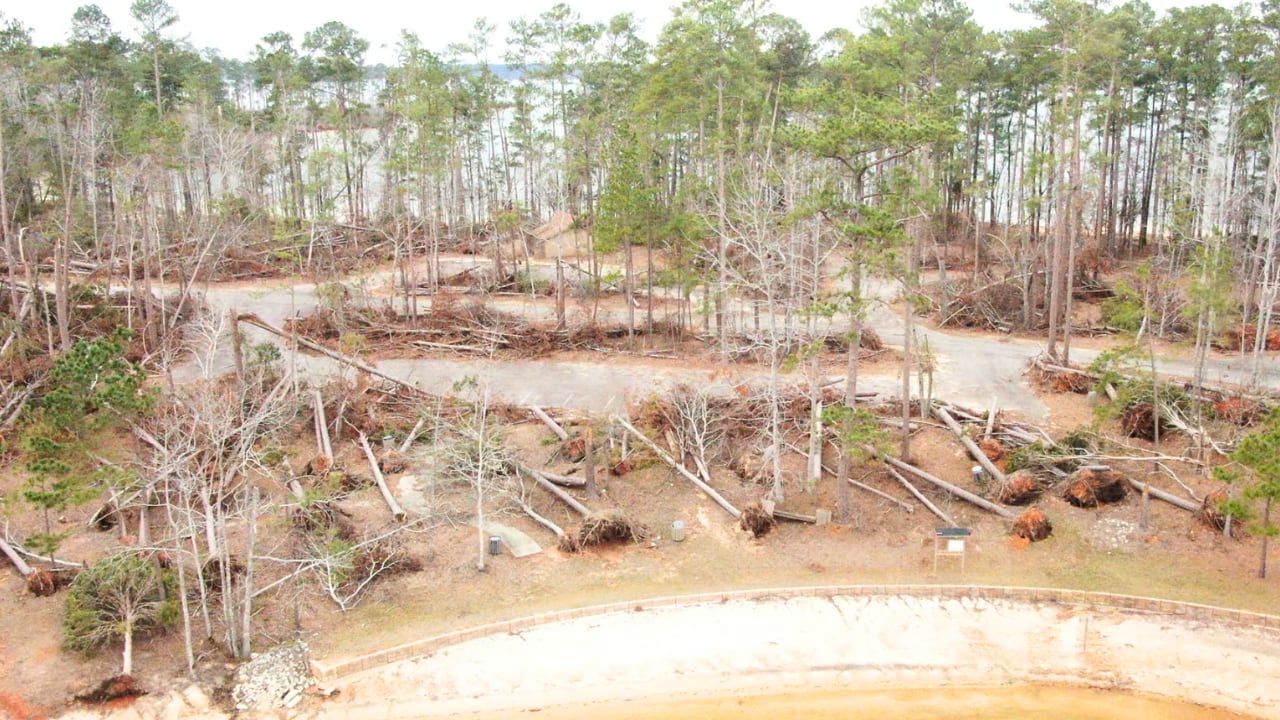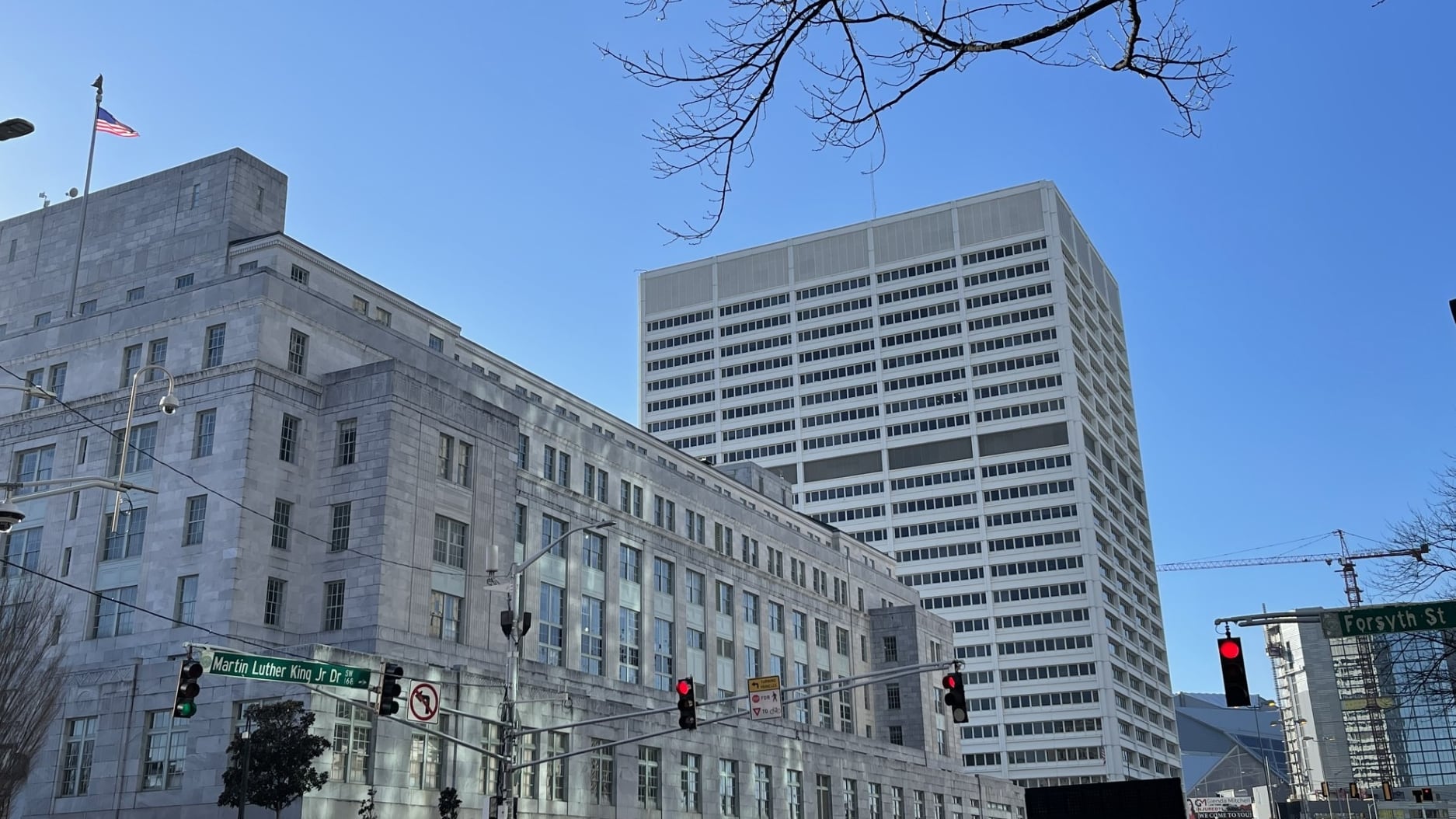Ga. Senate pushing a bigger boost in Hurricane Helene relief
ATLANTA (AP) — Georgia’s state Senate wants to boost spending on Hurricane Helene relief even more, including creating a grant program that could provide aid to individuals.
The state Senate voted 55-1 Wednesday to House Bill 67, which amends Georgia’s current state budget running through June 30. Senators and representatives must now work out their differences before the bill can go to Gov. Brian Kemp for his signature or veto.
The House earlier added $150 million, including $75 million apiece for low-interest loans to farmers and the cleanup of downed timber on private lands, over what Kemp originally proposed. The Senate plan would spend $100 million apiece on both of those priorities, boosting the House proposal by another $50 million.
How does controlled burns impact CSRA’s air quality?
Fire and smoke are common around the CSRA this time of year. Prescribed fires can cause issues with air quality sometimes, but they are a net good for our area.

Helene caused more than $5 billion in damage to farming and forestry in Georgia, estimates show.
The Senate also wants a $25 million fund to pay for charities to give grants to people who are in need after the storm, boosting what had been a House plan for $10 million in grants to rural communities.
“We have people who aren’t farmers. They aren’t timber owners. They’re not small governments themselves, but they’re still hurting too,” said Senate Appropriations Committee Chairman Blake Tillery, a Republican from Vidalia. “In fact, in my district, about every third house still has a blue tarp on the roof. They either haven’t been able to resolve their insurance claim yet, or they’ve not been able to find a contractor who could come to replace that roof.”
Army Corps of Engineers awaits funding for Helene cleanup
While cleanup and pick-up have been underway across most of the CSRA, the U.S. Army Corps of Engineers is still waiting on funding for debris removal around their sites at Clarks Hill Lake.

The Senate also added another $50 million to help pay for the state and local share of debris removal after Presidents Joe Biden and Donald Trump rejected pleas for the federal government to pay 100% of the costs for six months. Instead, after 120 days, the federal share fell to 75%.
If lawmakers ultimately agree, Georgia would spend more than $850 million to aid local governments and individuals after Helene cut a swath across eastern Georgia.
MORE FROM NEWS 12
Georgia: Latest from the state Capitol

- Ga. bill to veto government rules isn’t the same as DOGE. But Democrats are still upset
- Ga. Democrats push for better working conditions for the states warehouse employees
- Ga. officials, others face penalties for resisting immigration crackdown
- Transgender sports legislation moves forward in Ga. House
- Augusta Democratic lawmaker counters GOP with tort reform solution
- New Ga. child-care safety bill proposed after boy dies
Lawmakers are considering tax breaks for farmers and timber growers that could boost relief costs well above $1 billion.
The budget also includes $1 billion for a third round of income tax rebates that Kemp and legislative leaders have promised. The plan would again give refunds of up to $250 to single filers, up to $375 to single adults who head a household with dependents and up to $500 to married couples filing tly.
Kemp proposed boosting overall spending by $4.4 billion in state funds in the remainder of the budget year, with $1.7 billion coming from increased revenue. The remaining $2.7 billion would come from Georgia’s $16 billion in surplus and reserves.
‘Flat out wrong’: Ga. federal workers react to DOGE ultimatum
Georgia federal workers had until midnight on Monday to respond to a complicated request that tasked them with listing weekly accomplishments.

Georgia would spend $40.6 billion in state funds, up from the $36.1 billion ed last spring. The state will spend billions more from federal aid and other sources.
Because lawmakers can’t spend above the amount that Kemp proposes, they have to cut other areas to boost spending on their own priorities.
For example, Kemp asked for four new modular prisons. The House offered two, while the Senate proposes three, allowing each body to shift some spending elsewhere. Kemp proposed $100 million to pay off existing debt, while the House zeroed out that spending and the Senate proposes $60 million.
Copyright 2025 WRDW/WAGT. All rights reserved.















